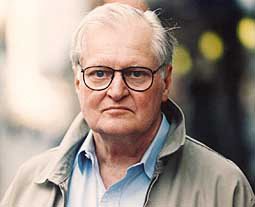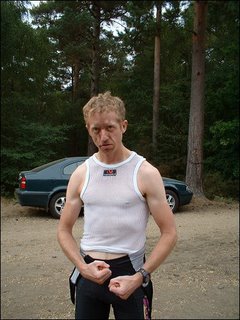 Ashbery's Music
Ashbery's MusicWhen my favorite poet, John Ashbery, was 22 or 23, he was in the depths of a terrible writer's block. "Then he happened to go to a John Cage concert and heard Music of Changes - nearly an hour of banging on a piano alternating with periods of silence, as dictated by a score that Cage had put together using the I Ching so that it would be determined by chance rather than by his choice."
Chance, indeed. That quote is from a lengthy article, unfortunately not linkable, by Larissa MacFarquhar in the Nov 7 edition of The New Yorker that was in my mailbox when I got home yesterday evening. Chance - yesterday at work I was listening to Live 365 play pieces from Meredith Monk's *Key,* while eating lunch and reading "Autumn on the Thruway" from *Hotel Lautreamont.* Each made the other more deeply, more inexpressibly understandable.
What the two had in common, among many things, is an exploration of space, of seeking to expand the canvas and score of what is possible as key intention. For Ashbery (who I am far more confident of speaking on), the meaning is secondary to creating the new space where new meanings can be understood, perhaps only subliminally, only intuitively, that wasn't there before.
In any case, if you're interested in Ashbery's poetry, I recommend the article. But some questions:
Besides the Cage piece, the article mentions a Satie piece, "Musique d'Ameublement." Can anyone tell me anything about either?
This article talks about a colloboration of sorts between Ashbery and Charles Wuorinen. I've never heard of Wuorinen. Anyone have any opinion? What should I check out? Why does the article refer to him as a "musical tough guy?"
Here is Ashbery's Self-Portrait in a Convex Mirror, his most famous, if not my favorite, poem.
Here is Just Walking Around.



